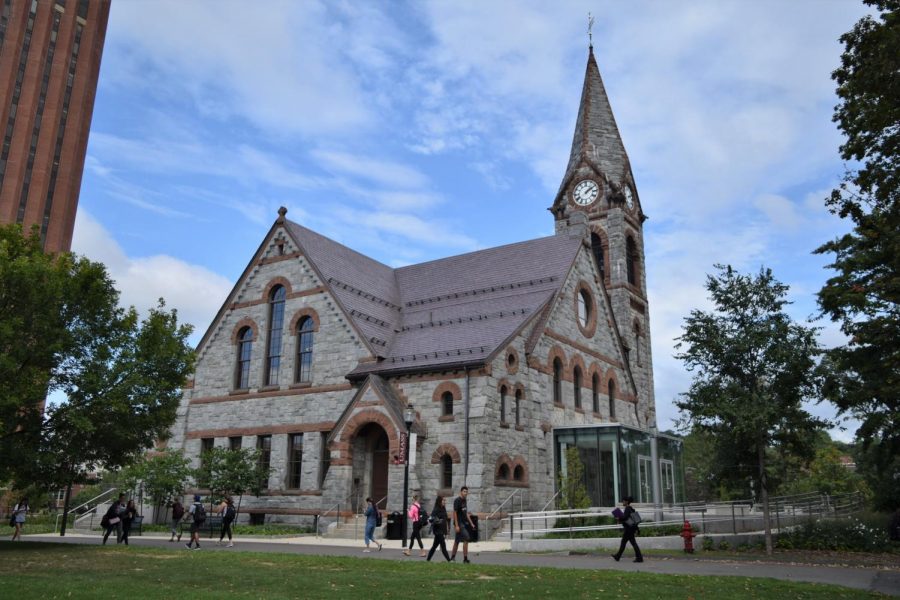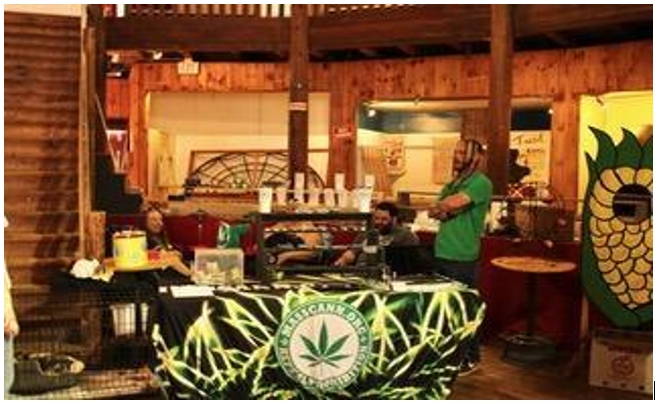Just a few weeks ago everything was different. We were at school, at work, the store, the gym. We were touching and laughing together without sudden moments of frozen uncertainty interrupting the joke. We were planning for spring breaks, summer vacations, internships, graduations and we weren’t planning the tactics of our next trip to the grocery store. Good times, right? Let’s not go back.
The global crisis that is COVID-19 has thrown just about every aspect of daily life out of orbit. It has caused a lot of strife, devastating small businesses, pulling young people from education, jeopardizing the health of an important slice of our community, but it has also served as a catalyst for some important social changes that deserve recognition and protection.
It’s not groundbreaking that society has been in an abusive relationship with the environment, one that no amount of recognition has been able to reverse or even slow. One of the main arguments against climate justice is that it’s out of our control or that individuals, even in aggregate, can’t make a difference without forgoing all of modernity. The global response to COVID-19 has shown otherwise.
Many countries and U.S. states have implemented some level of mass quarantine in attempts to slow the spread of the virus. While there have been many devastating effects including record unemployment and an impending, if not already here, economic recession, there have been remarkable decreases in air pollution.
The BBC reported that, as a result of stay at home orders, carbon monoxide (CO) pollution in New York has decreased by 50 percent and carbon dioxide (CO2) emissions by 5-10 percent compared with the same time last year. Nitrogen dioxide (NO2) levels in Northern Italy dropped about 40 percent under lockdown and surrounding areas have seen similar changes. These examples are most likely a result of reduction in traffic which accounts for up to 95 percent of CO, and is a leading cause of both CO2 and NO2 emissions in the U.S.
Current measures of isolation, of course, are not sustainable and the sources above are all quick to note that the activities that will surround the rebuilding of the economy are likely to counteract any impact the virus has had on the environment. The point, though, is not to say that people should be confined to their homes or that a short hiatus from typical activities is enough to save our planet; it is to say that individuals have the power to stimulate significant change.
What is important is that society has been forced to realize that it is possible to function differently. It is estimated that about 50 percent of the U.S. workforce could work from home and if those who could did so just half the time, the impact would be equal to that of removing the entire New York workforce from the roads. This is the type of long-term change that the COVID-19 outbreak should encourage. Now that it has been done at such an extreme level, it should not feel so daunting to maintain on a more modest route.
In addition to environmental concerns, the COVID-19 outbreak has caused a lot of social good to shine through. Humanitarian changes that have been perpetually dismissed as long-term aspirations are now being implemented quite suddenly.
The United States boasts the highest incarceration rate in the world and, of those locked up, the majority are being held pre-trial. Those who cannot afford bail may spend months behind bars for a minor crime that would otherwise not call for jail time. Those in jail for probation violations make up a large percentage of the incarcerated population. Despite increases seen in U.S. incarceration over the past 40 years and statistics that don’t show up in other developed nations, change has been on the back burner.
COVID-19 changed that.
Prison populations, who are held in close quarters with poor sanitation, are especially vulnerable to the virus and its spread. Last week, New Jersey chief justice, Stuart Rabner, signed an order that would release up to 1,000 inmates serving time for low level crimes such as probation violations. Those being held pre-trial can argue for release and officers have been encouraged to avoid new arrests of people who do not pose an imminent threat to the community.
Homeless populations around the country are seeing a surge in compassion as well. In Santa Clara County, which, according to Forbes, has the 4th largest homeless population of any city or county in the U.S., there has been a recent scramble to house the needy. The county is paying for 172 hotel and motel rooms, opening two new homeless shelters, and working to find other accommodations for the homeless. Other U.S. cities such as Chicago and San Francisco are taking similar steps.
Most of the rooms being opened up to the homeless would otherwise be vacant. Not only is this good for the individuals and families who are now off the streets, it also benefits the owners of the rooms. Yes, the cities had to find the money to fund these changes, but they did. It took widespread fear that those living on the streets might pose a public health risk to the upper class to implement policy changes, but it showed that such changes are possible, and this is something that should not be forgotten.
Communities have come together for other, less critically needy groups as well. Cable providers such as Charter Communications have offered to provide 60 days of free internet access to students and educators during the outbreak.
In a crisis, it feels especially good to be charitable, but when this is over, it doesn’t mean people don’t need help anymore. COVID-19 has shown a myriad of ways in which average people can make profound differences in the lives of their neighbors. This isn’t something that should be allowed to slip away as the pandemic fades.
These are the first changes to come during COVID-19. There are many more to come: will COVID-19 force the U.S. to modernize the voting system? Will universities realize that it is possible, even preferable, to judge applicants without standardized test results? Will teachers become more adept at utilizing the vast world of technology that is oddly absent from modern classrooms? Whatever choices we are forced to make in these times of turbulence, we can’t let our desire for normalcy blind us to the progress born out of a pandemic.
Over the next few months, as society continues to bend and stretch in new and fascinating ways, people must swallow their terror and take note. The period of profound change we are experiencing must be seen as what it truly is: a global beta test of all the ideas that we have indulged as fantasies of the future but been too timid to implement. Life before COVID-19 may have been comfortable, surely more so than it is today. It’s okay to look back fondly and reminisce, but, please, let’s not go back.
Lily Robinson is a Collegian columnist and can be reached at [email protected].



















